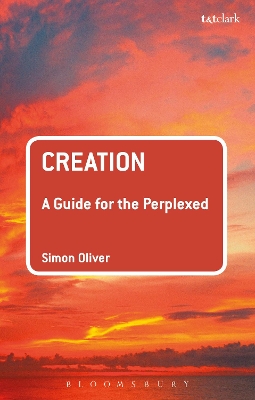Guides for the Perplexed
1 total work
This addition to our popular Guides for the Perplexed series tackles a subject that is enjoying renewed debate: Christianity, along with Judaism and Islam, claims that the universe is not a brute fact. It is 'created'. But what do we mean by 'creation'? Do we mean that the universe is 'designed'? Is it the product of an evolutionary process? How are creatures related to God, and does God act within creation?
Simon Oliver begins with the background to the Christian theology of creation in Greek philosophy and the Old Testament. This provides a route into understanding the claim that we are part of a created order that is also the theatre of God's providential action. He examines different understandings of creation, including creation out of nothing and the analogy of being, with close reference to the work of patristic and medieval theologians such as Augustine and Thomas Aquinas. This leads to an historical overview of the relationship between theological, philosophical and scientific approaches to creation in the modern period. Some of the ethical issues concerning humanity's place within, and treatment of, creation and our environment are also examined. A distinctive yet traditional theology of creation is proposed focused on the concepts of gift and participation as ways of understanding more fully the meaning and implications of the claim that the universe is created.
Simon Oliver begins with the background to the Christian theology of creation in Greek philosophy and the Old Testament. This provides a route into understanding the claim that we are part of a created order that is also the theatre of God's providential action. He examines different understandings of creation, including creation out of nothing and the analogy of being, with close reference to the work of patristic and medieval theologians such as Augustine and Thomas Aquinas. This leads to an historical overview of the relationship between theological, philosophical and scientific approaches to creation in the modern period. Some of the ethical issues concerning humanity's place within, and treatment of, creation and our environment are also examined. A distinctive yet traditional theology of creation is proposed focused on the concepts of gift and participation as ways of understanding more fully the meaning and implications of the claim that the universe is created.
